7. Down By Law (1986, Jim Jarmusch)
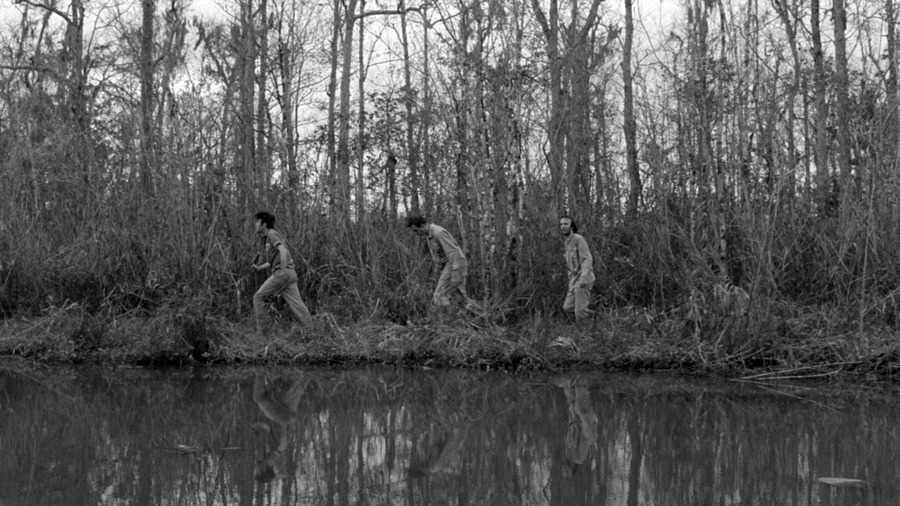
Who would’ve thought that a filmmaker as hip, cool and often distanced as Jim Jarmusch would make a great movie about unlikely friendship? “Down By Law” stars John Lurie, Tom Waits and Roberto Benigni as three prisoners who all (more or less) innocently end up in a prison cell.
Add in Robby Müller’s great black & white cinematography and you very much get something that sounds an awful lot like “A Man Escaped” with some humor.
Yet it turns out differently as we see these different men get to know each other and then watch them escape. Of course Jarmusch isn’t interested in the spectacle of escape, but instead shows us the tedious nature of running and always fleeing one way, not really knowing where you’re going.
And during this process these men get to know each other, they get on each other’s nerves, help one another and slowly learn about each other. Thankfully Jarmusch knows how to handle this without sentimentality, so it seems honest and true to his characters.
6. The Big Lebowski (1998, The Coen Brothers)
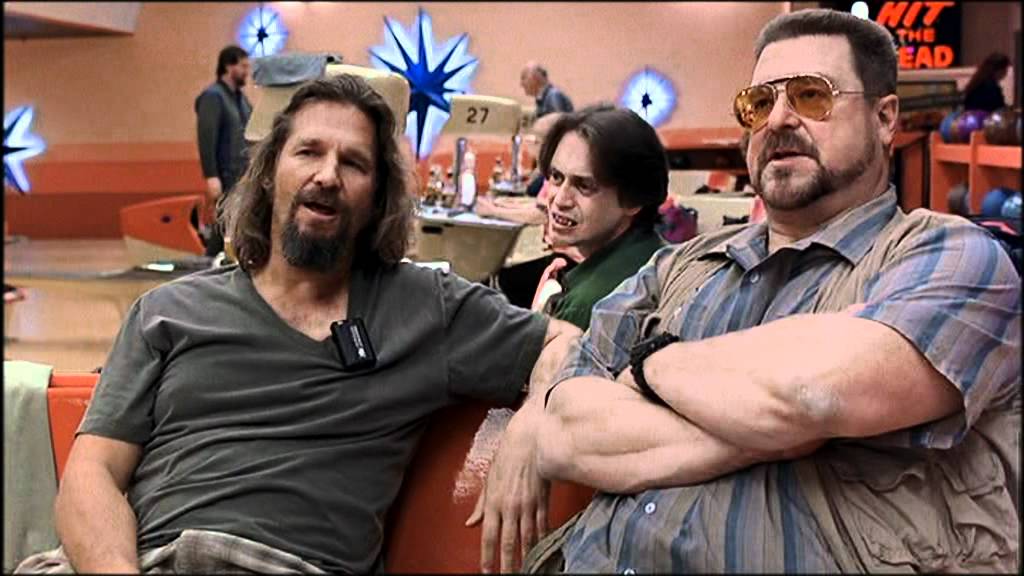
It’s hard to write about a film, that has been championed so much especially since the internet is around. People all around the world are obsessed with the film, it’s philosophy, the acting, the characters and many can recite dozens of lines from it. And what else can one add? They’re all right.
“The Big Lebowski” is a wonderful and hilarious film, that has wonderful performances from the entire cast and takes a look at several philosophies of living (and popularized Dudeism). Yet it’s not only the fact, that the film is hilarious, that makes it work so well. In the end an often overlooked aspect is how much the Coens make us care for these characters. Sure Walter is an ass, but he’s also lovable and a loyal friend.
We really care about the Dude and Donny and Walter and we even want them to get into the next round of their bowling tournament. And when the film even makes us loose a character, the loss is truly felt, no matter how funny the gags around it are. That’s why “The Big Lebowski” is more than just funny – it’s a great film.
5. Butch Cassidy And The Sundance Kid (1969, George Roy Hill)
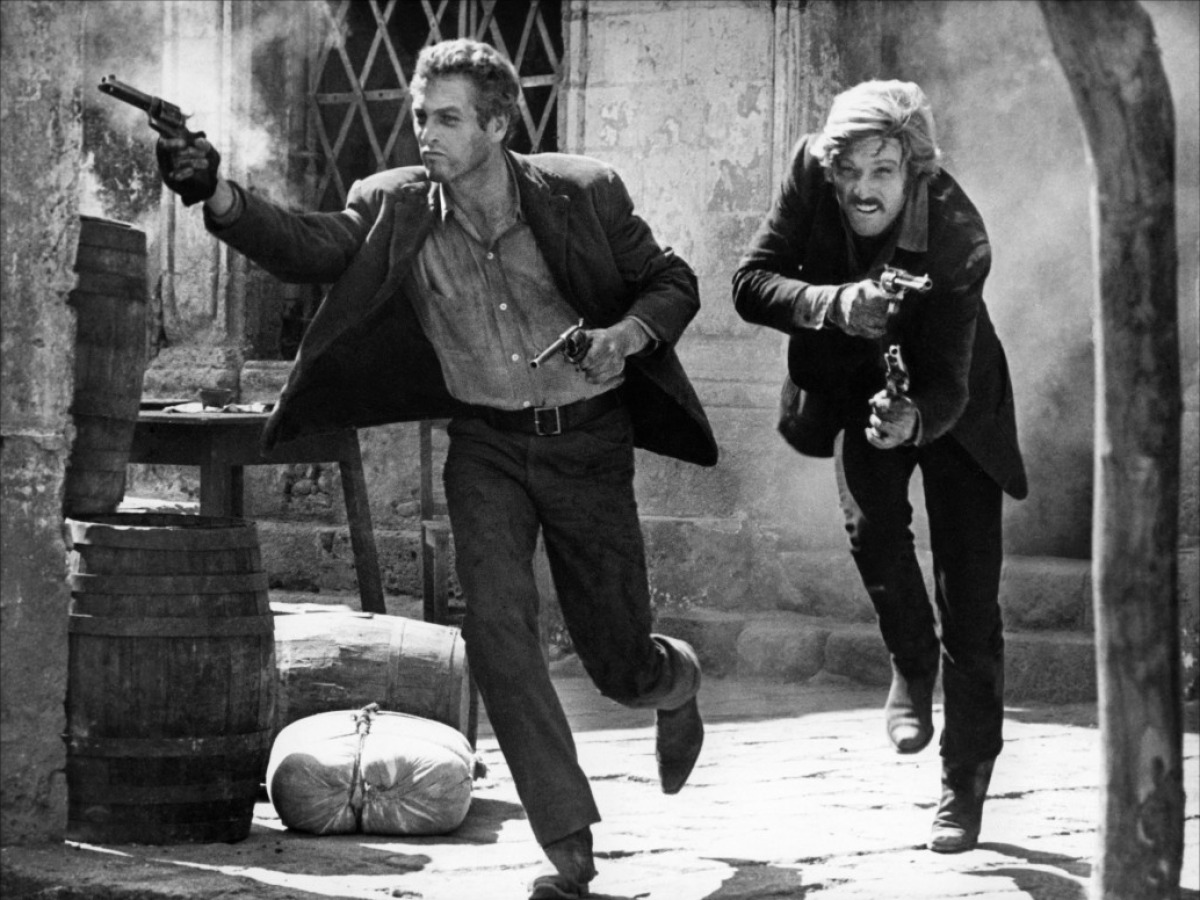
Probably the classic buddy film, that influenced the formula for all those to come “Butch Cassidy And The Sundance Kid” is a wonderful film, that is equally lighthearted as it is dramatic.
Starring the charismatic duo consisting of Robert Redford and Paul Newman the real joy of the film comes from watching the two of them interact. In fact the sometimes heavily handled story and the sometimes sloppy dialogue are easily forgotten, simply because of how well they play off each other.
George Roy Hill’s direction helps too, as he mostly balances the tonal shifts very well, and the film also doesn’t look like any other buddy movie (just look at the way the opening scene is shot!). All those elements together with a wonderful score make for an incredibly fun and entertaining film.
4. The American Friend (1977, Wim Wenders)
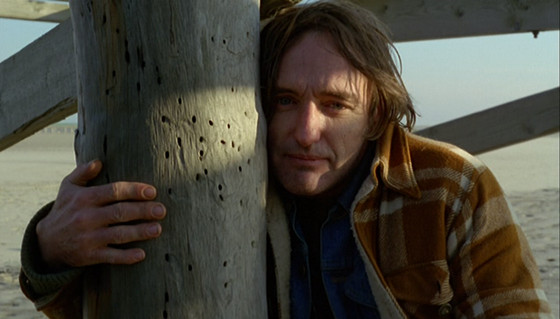
The most known films based in Patricia Highsmith’s character Tom Ripley, are “The Talented Mr. Ripley” and “Purple Noon”. Wim Wenders’ film about Tom Ripley is often forgotten, but at least as good of a film, as the other two.
In “The American Friend” Dennis Hopper is Tom Ripley, but he is barely our main character, the plot instead mostly resolves around the ill Jonathan Zimmerman (Bruno Ganz). As the film progresses initial apathy turns into a strange unspoken friendship. Ripley first uses Zimmermann to do his dirty work, but as they grow closer Ripley helps and protects Zimmermann.
It’s hard to pin down what makes their friendship, as it goes unspoken, but the viewer can clearly feel their bond, not only through their actions, but sheer glances. Wenders has always been interested in mixing European culture with American, and does so not only by his style in this film (some shots look like paintings by Edward Hopper), but also with his two main characters.
3. Once Upon A Time In America (1984, Serio Leone)
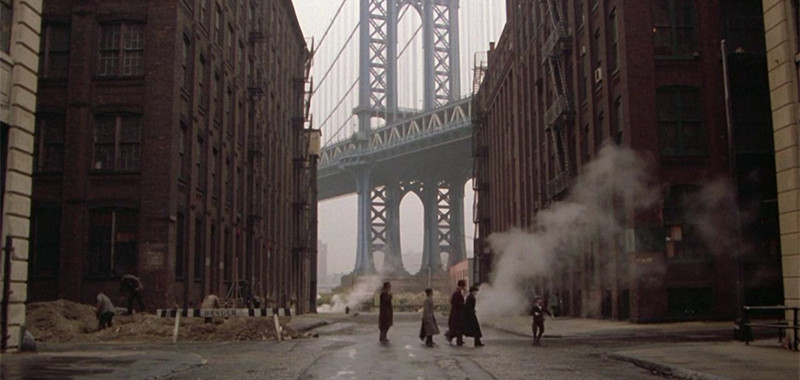
Is their a more tragic film about friendship than “Once Upon A Time In America”? It’s certainly very hard to think of one. This epic spanning several decades depicts the lives of a group of friends from their childhood days, through their criminal career in the time of the Prohibition and until the 1960s.
The movie functions perfectly well as an epic drama, and has moments that can theatrically easily keep up with Leone’s other work (just think of the slow motion run, when the kids try to escape from Bugsy). But what sets this film apart is a deeply embedded sadness, that Leone had only hinted at in films like “Once Upon A Time In The West”. Here it’s solidified in singular moments, that burn themselves into the memory long after the film has gone by.
After 4 hours of following this journey (and please do watch that version and not the butchered cut) when Noodles and Max meet again, all we need to know is in their eyes.
2. The Seven Samurai (1954, Akira Kurosawa)
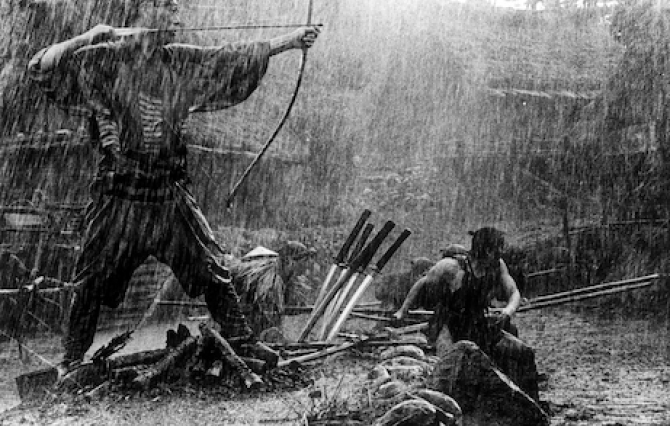
Akira Kurosawa’s epic about honorable Samurai defending a town against bandits is probably one of the most influential films ever, especially in the way it influenced action movies to come.
Of course it also deals wth the themes, that most action films look at, those being: pride, honor, heroism and male friendship. The movie takes it’s time to show us it’s character, introducing them visually.
Then over the course of the plot we get to look at something ,that most action films miss: Kurosawa wonderfully stages the action, but his main interest is watching the characters unfold. We see their respect slowly grow into friendship, and Kurosawa especially shows us this development with the character of Kikuchiyo (wonderfully portrayed by the great Toshiro Mifune).
1. The Master (2012, Paul Thomas Anderson)
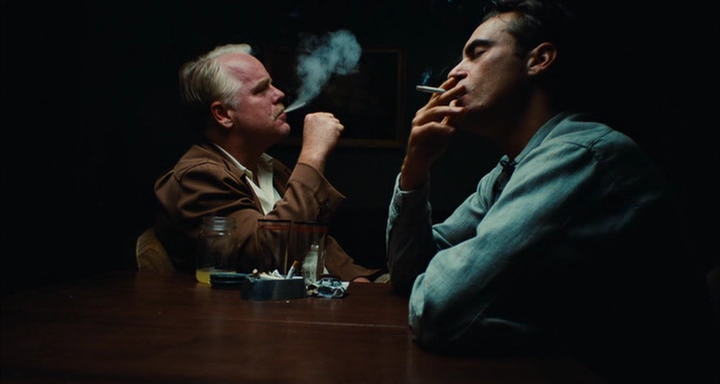
When Paul Thomas Anderson brought out “The Master” in 2012, nobody was expecting the film to be the way it was. It seemed very enigmatic and almost esoteric in a way that shocked and turned off many audiences (especially after “There Will Be Blood” had been a critical hit with Oscar wins).
A question that is still being asked is: What was that film actually about? While at first press mostly reporting about Anderson making a film “about Scientology” that claim soon showed itself to be inaccurate at best.
While the film is very mystical one can say that one of it’s main topics and themes is the unlikely friendship between it’s two lead characters Lancaster Dodd and Freddie Quell. Some would even argue that it’s a love story, as we see these 2 men grow fond of each other for reasons that aren’t really explicitly stated.
Freddie seems to look up to Dodd, hoping for answers or reason in his life, while Dodd hopes for and admires the freedom that Freddie has in his life. This dynamic makes the film the more heartbreaking, when by the end Freddie figures out, that Lancaster can’t help him, so he takes off aimlessly, but changed.